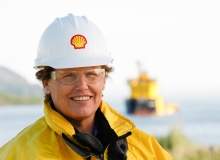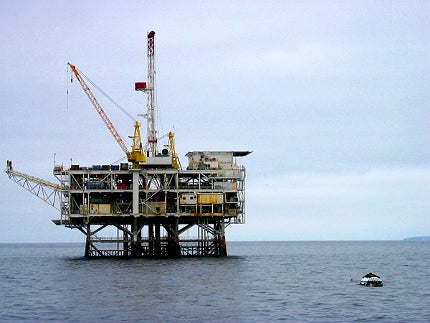

Recent analysis from the Royal Academy of Engineering showed that women made up 51% of the UK population, but only eight percent of engineering professionals. Furthermore, says a survey conducted by the Centre for International Labour Market Studies, female workers make up just four percent of the total oil and gas workforce in the UK.
The offshore figure is even worse, reports Oil & Gas UK, with 2,138 female employees travelling offshore in 2012 out of the total number of 56,982, and only 753 were core workers (those working more than 100 nights per year offshore).
A global imbalance
The gender imbalance impacts not only company performance, as demonstrated through McKinsey’s series of Women Matter reports, but employment levels as a whole. The UK gains 90,000 STEM (science, technology, engineering and maths) graduates a year, but needs 100,000 each year just to maintain employment levels between now and 2020.
"Research shows that teams achieve better results with a range of diverse – rather than homogenous – skills and attributes," says Geraldine Wooley, business adviser at the Scottish Resource Centre for Women in Science, Engineering and Technology (SRC for Women in SET). "Oil and gas needs more women engineers to create diversity in their work force."
Government figures reveal a major source of untapped talent, says Sally Martin, Shell’s vice president for downstream health, safety, security and environment and UK president of Shell Women’s Network. "Girls outperform boys across the board at school, but only 12% of engineering and technology undergraduates are women, and an even smaller number take up jobs in the sector once they leave university," she says.
How well do you really know your competitors?
Access the most comprehensive Company Profiles on the market, powered by GlobalData. Save hours of research. Gain competitive edge.

Thank you!
Your download email will arrive shortly
Not ready to buy yet? Download a free sample
We are confident about the unique quality of our Company Profiles. However, we want you to make the most beneficial decision for your business, so we offer a free sample that you can download by submitting the below form
By GlobalDataOpportunities and obstacles
Traditionally, a lack of career guidance and awareness regarding possible roles, along with the perception of the oil and gas industry being harsh, lonely and male-dominated, has meant the industry has struggled to attract women into its workforce.
Yet these are assumptions that certain bodies, such as SRC for Women in SET at Edinburgh Napier University, are working hard to change.
"All roles are open to women in the industry; chemical engineers, structural engineers, geophysicists and many others, but one aspect of technical work that women might find a challenge is the necessity for offshore work," says Wooley. "What they need to be aware of is that although a period of offshore work may be needed to advance their career, this can be achieved at an early career stage."
While many multinationals now have good employment practices in place, including dual career policies and flexible working, Wooley feels that the day-to-day of the industry does not project this side of the employment deal. "The industry needs to change its culture and the way it presents itself," she says, explaining that tackling workplace culture is key to ensuring it’s not a barrier to recruiting women.
Good career advice showing positive images of women engineers, women being encouraged to continue maths and science subjects and employers offering work experience are elements that Wooley believes can have a positive impact on the industry’s gender mix.
SRC for Women in SET
Recently SRC for Women in SET received money from the Scottish Government to increase the number of women moving into technical roles in the industry. Wooley explains that the funds will support women entering the oil and gas industry through a range of different initiatives.
CareerWISE is a new programme that SRC for Women in SET offers, which works with oil and gas employers in Aberdeen to encourage young women to enter SET careers in oil and gas. Interconnect is the organisation’s student support programme, which supports networks of women in SET subjects. "We hold a range of events, including networking sessions with women who work in the industry, career and recruitment advice from industry experts and site visits to familiarise students with the working environment."
Coaching for Success offers subsidised coaching sessions to support women who want to take stock of their SET careers and define and achieve goals. It is currently fully booked, however, underlining the demand for such initiatives.
SCR for Women in SET also works with oil and gas employers to help them address recruitment and retention issues. It helps to increase gender awareness in the workplace and supports positive action for women in the industry. Free career development sessions are held across Scotland for women at different stages of their SET careers, along with career clinics.
Career progression is one of the major issues that women in the workplace struggle with all over the world, especially in engineering and technical sectors and the oil and gas industry is no different. Access to childcare, flexible working hours and a lack of mentoring are all elements making the oil and gas workplace less comfortable for women, explains Wooley.
Shell support
Supporting women throughout their entire careers through its Women’s Career Development Programme is one of the key ways in which Shell gives staying power to its female workforce. "A company is more likely to be successful if its employee base better reflects the demographics of the marketplace," says Martin.
The career development programme is run internally to help women think through what a successful career path looks like for them. Martin is also involved in Shell’s Women’s Network as UK president, which helps women (and men) to grow professionally.
Part of the company’s success for attracting young women to the industry in the first place is through its Girls in Energy programme. Designed in collaboration with Banff & Buchan College in Scotland, it is a one-year all-girl course for 14-16 year olds in secondary education, which, says Martin, is "one step in the right direction at a local level in Aberdeenshire".
The project-based course has helped more than 200 students since its inception in 2009 and covers topics such as oil and gas, carbon capture and renewable energy.
"Over the summer of 2012, the last intake of girls got to explore all aspects of producing oil and gas in the North Sea," says Martin. "Amongst their many activities they donned survival suits in preparation for offshore helicopter transfer; drove a remotely operated vehicle (ROV) and learnt about advances in subsea robots at Subsea 7; met women working in the industry at St Fergus Gas Plant; and visited the many onshore specialty departments supporting the offshore teams."
New generation of role models
Initiatives and programmes such as this are proving vital and are producing a new generation of role models. Abbey Thomson, aged 16, is one of the students who took the 2012 course. "I had not thought of doing engineering for a career as I thought it was a man’s job," says Thomson, who now wants to be an instrument and control engineer.
After taking an engineering degree at Edinburgh Napier University and two industry placements, 25-year-old Samantha Murray is now a structural engineer at Wood Group Kenny in Aberdeen. She notes the current efforts being made to attract more women into engineering.
As initiatives such as those by SRC Women in SET and Shell expand, and awareness grows of successful young women making it in the oil and gas industry, the number of women taking STEM subjects and the conversion to engineering will gradually increase.
"As a truly global sector, the oil and gas industry offers skilled professionals, regardless of gender, exciting and rewarding career opportunities across a variety of technical and non-technical disciplines," says Michael Engell-Jensen, executive director of the International Association of Oil and Gas Producers.
"Whether you’re working on an offshore oil rig off the coast of Brazil, an onshore natural gas plant in Australia, or at a corporate office in London, you will be part of a diverse international team that is helping meet global energy challenges."
Related content
Oil & Gas UK’s Malcolm Webb on investment, skills and technology
The UK Government has unveiled a new oil and gas industry action plan aimed at securing billions of pounds of future investment and thousands of jobs.
Safety first: US institute launched to improve offshore safety
The US Bureau of Safety and Environmental Enforcement (BSEE) is launching an independent institute to improve safety practices across the offshore oil and gas sector.


.gif)





